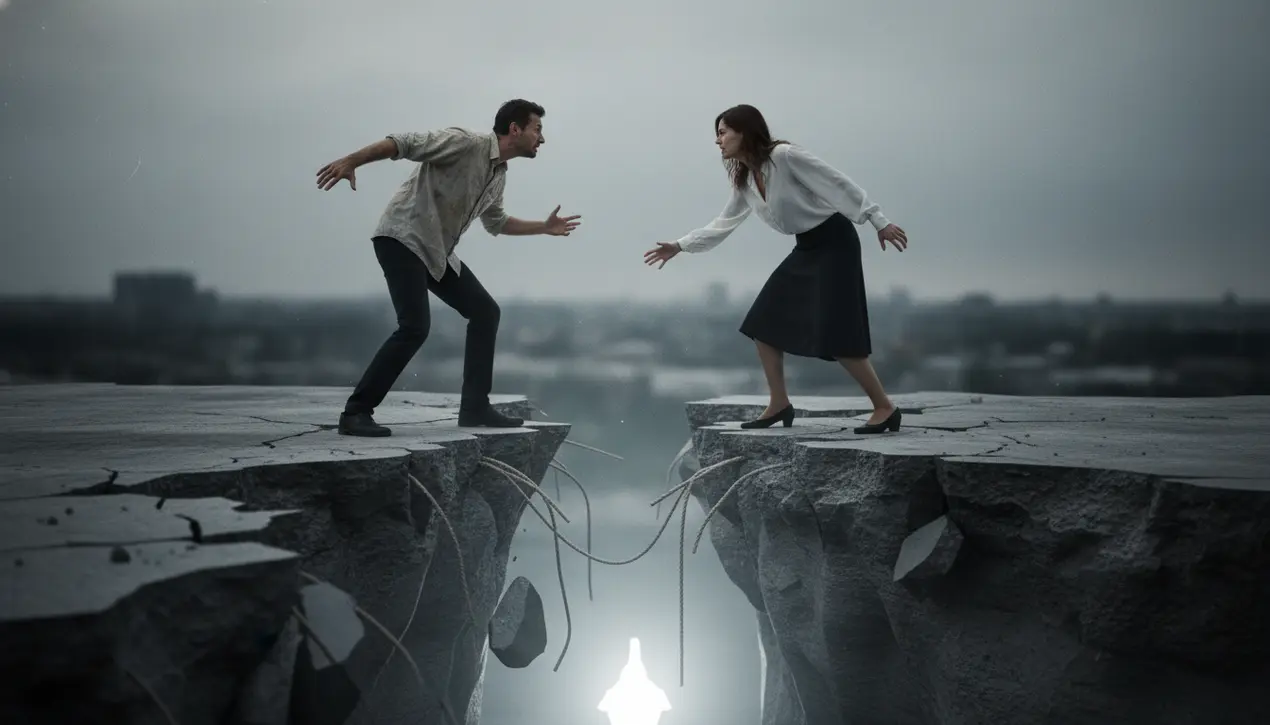
Scienceneuroscience
How to Fix Breakdowns in Communication by Carl Rogers
LA
Laura Bennett
2 hours ago7 min read3 comments
Two people meet, discovering that rare and intoxicating electricity flowing between them, exhilarated by a connection so profound it makes them forget the fundamental abyss that always separates one consciousness from another—until the inevitable day arrives when they realize they are having profoundly different experiences of the exact same situation. Suddenly, they find themselves hanging from the precipice of that very abyss, one hand gripping the edge for dear life while the other hand is busy sparring over whose reality is the true one.It’s a heartbreakingly human moment, one I’ve heard echoed in countless conversations with people from all walks of life, and it begs the question: what do you do when the bridge of communication collapses beneath you? In 1951, a time when the Cold War was menacing the entire globe with the specter of mutually assured destruction—a macro-scale communication breakdown with the most dire consequences—the pioneering humanist psychologist Carl R. Rogers brought his profound insights to the Centennial Conference on Communications at Northwestern University.Rogers, whose person-centered approach revolutionized therapy, proposed a deceptively simple yet radical solution for such breakdowns. He argued that the real barrier isn't a difference of opinion, but our failure to listen with the intent to understand.We listen to reply, to defend, to win. We project our own anxieties and interpretations onto the other person's words, creating a phantom argument instead of hearing the human being in front of us.From the couples I've interviewed who have navigated back from the brink of separation to the business partners who saved their company from internal collapse, the common thread is always the practice of what Rogers termed 'active listening' and 'unconditional positive regard. ' This isn't about passive hearing; it's an empathetic exercise in truly entering another's perceptual world without judgment.It means reflecting back what you've heard—'So, if I'm understanding you, you felt completely dismissed when I made that decision without consulting you'—not to agree, but to validate their internal experience as real and true for them. This act of empathetic understanding is what lowers the defensive walls.It transforms a battlefield into a shared space for problem-solving. The genius of Rogers' work is its universal applicability; it’s as vital for diplomats negotiating a tense ceasefire as it is for parents navigating a teenager's emotional turmoil.When we stop trying to prove our point and start trying to see the person, the abyss between us doesn't seem so insurmountable. We begin to build a new bridge, not of unanimous agreement, but of mutual respect and a shared commitment to the relationship itself, a lesson as urgent in our polarized modern world as it was in the shadow of the Cold War.
#communication
#psychology
#carl rogers
#conflict resolution
#featured
Stay Informed. Act Smarter.
Get weekly highlights, major headlines, and expert insights — then put your knowledge to work in our live prediction markets.
Related News
Comments
Loading comments...
© 2025 Outpoll Service LTD. All rights reserved.